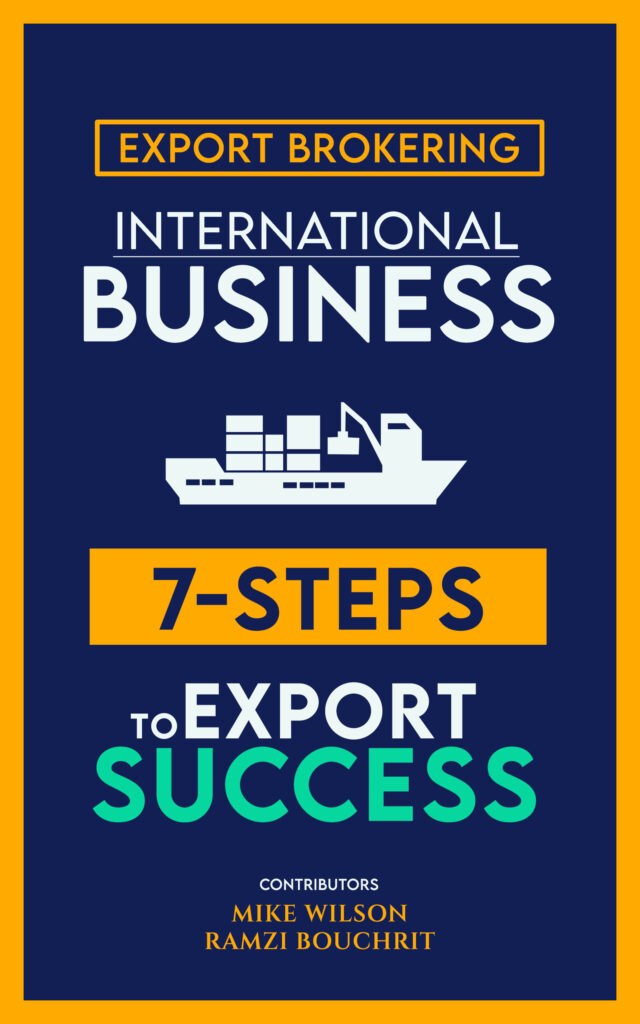Effective Negotiation Techniques for International Trade Brokers, learn more below!
| Table of Content |
|---|
| Introduction |
| H1: The Importance of Effective Negotiation Techniques for International Trade Brokers |
| H2: Building Relationships: The Foundation of Successful Negotiations |
| H3: Establishing Trust and Rapport |
| H3: Understanding Cultural Differences |
| H2: Leveraging Communication Skills |
| H3: Active Listening |
| H3: Effective Verbal and Non-Verbal Communication |
| H2: Preparation and Strategy |
| H3: Researching and Analyzing the Counterparty |
| H3: Setting Clear Goals and Priorities |
| H2: Overcoming Challenges and Finding Win-Win Solutions |
| H3: Problem-Solving and Creativity |
| H3: Compromise and Flexibility |
| Conclusion |
| FAQs |
Introduction of Effective Negotiation Techniques for International Trade Brokers:
Negotiation is a crucial skill for international trade brokers. The ability to navigate complex negotiations, secure favorable deals, and foster long-term partnerships can greatly impact the success of trade brokerage endeavors. In this article, we will explore effective negotiation techniques that empower trade brokers to achieve mutually beneficial outcomes in the international trade arena.
In this step of “The Export Series” we will show you how to become a successful Import Export (International Trade) broker.

Mr. Ramzi Bouchrit (RB JV Group) has provided us with helpful information based on the different transactions he made with his business partners in the field of the International Trade aka import export. “The Export Series”.
H1: The Importance of Effective Negotiation Techniques for International Trade Brokers
Effective negotiation techniques are essential for trade brokers due to the following reasons:
- Building Relationships: Negotiations are not just transactions; they are opportunities to build strong relationships with clients, suppliers, and partners.
- Understanding Cultural Differences: International trade involves diverse cultures, and understanding cultural nuances can help trade brokers establish trust and navigate negotiations successfully.
- Leveraging Communication Skills: Effective communication is key to conveying interests, understanding counterparty needs, and finding common ground during negotiations.
H2: Building Relationships: The Foundation of Successful Negotiations
Building strong relationships is the cornerstone of successful negotiations. Here are two key aspects to focus on:
H3: Establishing Trust and Rapport
Building trust is crucial in negotiations. Trade brokers should prioritize open and transparent communication, fulfill commitments, and demonstrate reliability to foster trust and rapport with the counterparty.
H3: Understanding Cultural Differences
Cultural differences can significantly impact negotiations. Trade brokers should invest time in understanding the cultural norms, communication styles, and decision-making processes of the counterparty to adapt their negotiation approach accordingly.
H2: Leveraging Communication Skills
Effective communication skills are paramount in negotiations. Here are two key communication techniques for trade brokers:
H3: Active Listening
Active listening involves giving full attention to the counterparty, understanding their perspective, and asking relevant questions. It demonstrates respect and helps uncover underlying interests, facilitating a more constructive negotiation process.
H3: Effective Verbal and Non-Verbal Communication
Trade brokers should master clear and concise verbal communication, articulating their interests, and advocating their position. Additionally, non-verbal cues, such as body language and facial expressions, should be managed to convey confidence, respect, and understanding.
**H2: Preparation and Strategy
**
Thorough preparation and strategic planning are crucial to negotiation success. Consider the following:
H3: Researching and Analyzing the Counterparty
In-depth research about the counterparty's business, market position, and previous negotiations can provide valuable insights and help trade brokers anticipate their needs and preferences.
H3: Setting Clear Goals and Priorities
Trade brokers should define clear negotiation goals and prioritize them to maintain focus during the negotiation process. Clarity on desired outcomes helps guide the negotiation strategy.
H2: Overcoming Challenges and Finding Win-Win Solutions
Negotiations often present challenges, but skilled trade brokers can overcome them and find win-win solutions. Consider the following techniques:
H3: Problem-Solving and Creativity
Trade brokers should approach negotiations as problem-solving exercises, exploring creative solutions that satisfy the interests of both parties and maximize mutual benefits.
H3: Compromise and Flexibility
Flexibility and willingness to compromise when appropriate can lead to mutually beneficial agreements. Trade brokers should identify areas of flexibility and seek compromises that address the interests of all parties involved.
Conclusion of Effective Negotiation Techniques for International Trade Brokers
Mastering effective negotiation techniques is crucial for international trade brokers. By building strong relationships, leveraging communication skills, conducting thorough preparation, and adopting problem-solving approaches, trade brokers can navigate complex negotiations successfully. These techniques empower trade brokers to secure favorable deals, foster long-term partnerships, and achieve mutual success in the dynamic world of international trade.
FAQs
Q1: How long does it take to develop effective negotiation skills?
A1: Developing effective negotiation skills is an ongoing process that requires practice, experience, and continuous learning. Improvement can be seen over time with consistent effort and a willingness to learn from each negotiation experience.
Q2: What should I do if negotiations reach an impasse?
A2: If negotiations reach an impasse, it is essential to maintain open communication, reevaluate interests, and explore alternative solutions. In such situations, involving a neutral third party or mediator can also be beneficial.
Q3: How can I adapt my negotiation approach to different cultures?
A3: Adapting to different cultures involves understanding cultural norms, values, and communication styles. Showing respect, actively listening, and being sensitive to cultural differences can help trade brokers navigate negotiations successfully.
Q4: Is it possible to achieve a win-win outcome in every negotiation?
A4: While not every negotiation may result in a win-win outcome, skilled trade brokers strive to find mutually beneficial solutions that address the interests of all parties involved. This approach promotes long-term relationships and a positive reputation in the trade industry.
Q5: How can I enhance my negotiation skills as an international trade broker?
A5: Enhancing negotiation skills involves continuous learning, seeking feedback, and analyzing past negotiation experiences. Engaging in negotiation workshops, courses, and networking with experienced professionals can also contribute to skill development.
=======================================
To know how to do the international trade transactions the right way, you can get in touch with us using the below contact details:
Email: export@ramzisite.info
Phone: +1 424 208 0297
WhatsApp: https://wa.me/+14242080297
Website: https://ramzisite.info
To get more real life examples of successful Export transactions in a step by step manner, please visit our Amazon Book (Mike Wilson & Ramzi Bouchrit), 7 Steps to Export Success: https://amazon.com/dp/B0B35HG9PC





